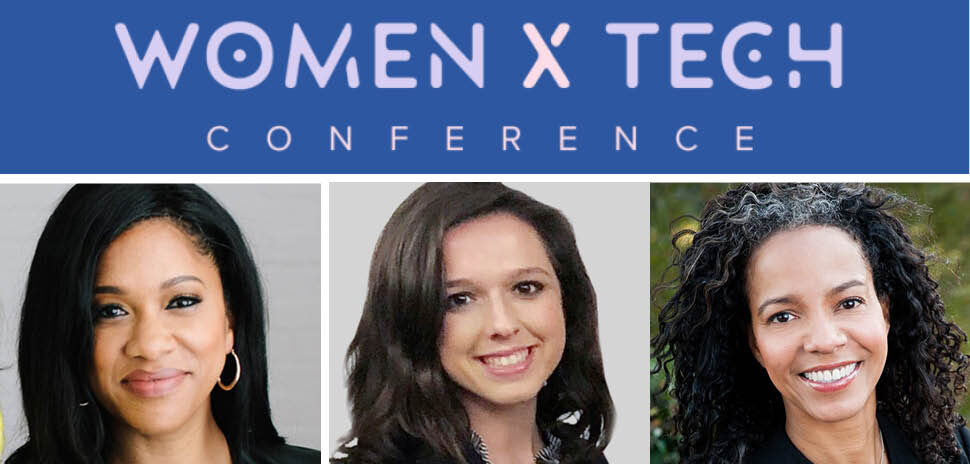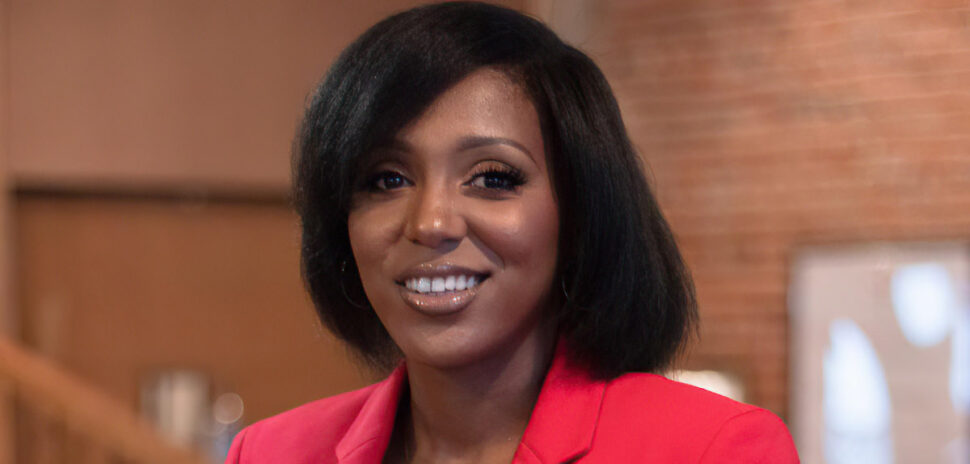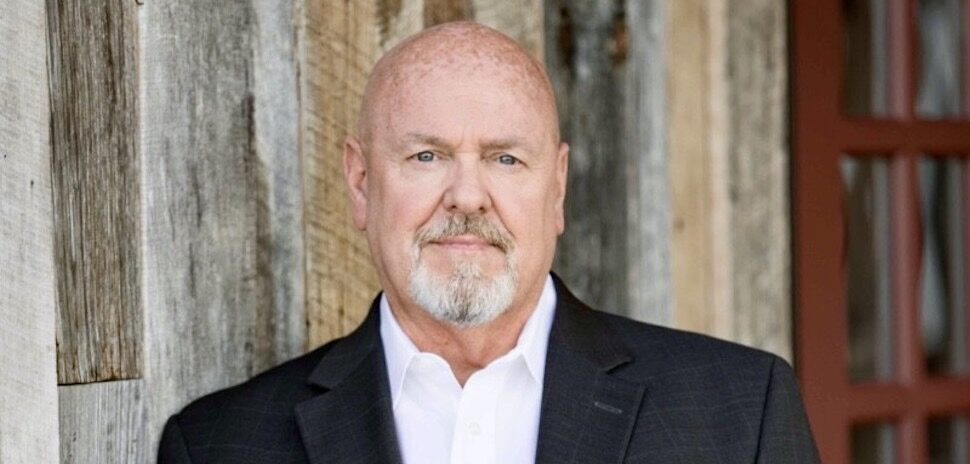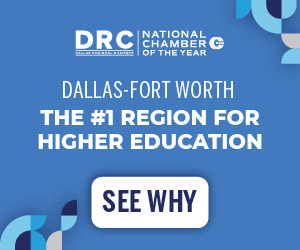![]() In this weekly column, CEO of The DEC Network, Bill Chinn, interviews a “celebrity mentor” that is currently participating in the organization’s Fast Start Mentor Program. The program matches tenured business leaders who have handled crises before to small business owners struggling to navigate the COVID-19 crisis.
In this weekly column, CEO of The DEC Network, Bill Chinn, interviews a “celebrity mentor” that is currently participating in the organization’s Fast Start Mentor Program. The program matches tenured business leaders who have handled crises before to small business owners struggling to navigate the COVID-19 crisis.
This week, Bill Chinn spoke with Shontaye Hawkins, CEO and Business Strategist of Profit Is The New Black LLC, to get actionable advice for small business owners and entrepreneurs including avoiding the pitfalls, navigating the highs and lows, and allowing your mentor to get to know you along with your passions to create impact and success.
Bill Chinn: Our first question comes in two parts: why do you mentor and why do you feel it is important to mentor?
Shontaye Hawkins: I feel like it is our duty to help others reach their full potential, especially when we’ve reached certain levels of success. Once we’ve had certain accomplishments, we should be able to turn around and say, “Let me help someone who’s not as far along as I am.” We should be helping and guiding them through that journey in a way that they can avoid the pitfalls and challenges that we may have experienced before. We already have all of the scrapes, scars and stitches from those experiences. If I have already scraped my knee and know that’s not the right way to do a certain thing, then there is no point in someone else doing that exact same thing if I can help guide them to take a different approach.
BC: I completely agree, mentors can save mentees from getting scars that we have already gotten. Can you tell me about your experience participating in our Fast Start Mentor Program?
SH: The whole entire process, from applying to being matched with someone, has been awesome. My mentee and I have had one virtual session so far and several interactions via email and it has been really good so far. She was really open by admitting, “I don’t know what I don’t know.” She wanted to know what’s next for her, so I guided her through a couple of things she could implement immediately in her business. She told me last week that she had a call with a prospective client and they signed up, so she’s making more money within a very short period of time even in the midst of everything that is going on right now.
BC: That’s great that you’ve already had an impact on your mentee during this process. What are you recommending to small business owners or entrepreneurs through this crisis?
SH: Two words: keep going. You didn’t get this far by accident, so keep building. The whole entrepreneurial journey is a roller coaster ride—it is filled with highs and lows each and every day. We learn as business owners how to navigate the highs and lows; that is what entrepreneurship is. Obviously, this crisis is something that none of us could have imagined or could have seen ourselves having to deal with, but at the end of the day there is this challenge that we are all facing and this crisis that we are all going through right now. Ask yourself, what’s the opportunity in all of this that’s waiting for you to discover it?
BC: it’s a roller coaster ride, and you just have to stick with it, so that’s wonderful advice.
SH: Yes, and don’t be too afraid or proud to ask somebody for help. If you don’t know all the answers or you don’t have all of the pieces to the puzzle, reach out for help.
BC: I couldn’t agree more. What advice do you have for a mentee to add value to that relationship?
SH: Mentees should communicate, and more specifically, ask lots of questions. Mentors are not mind readers, so we don’t know what you need. It’s really important that you are open and are not afraid to be yourself. My mentee is sharing things that she is passionate about in addition to her business, so I’m learning more ways in which I can support her with her business as well as with other things that could tie into her business. Let your mentor know who you are: Why do you do what you do? What excites you? What are you afraid of? Ask questions, be personal and treat it like it’s a relationship, like a friend.
BC: That’s great advice. Can you talk about your experience as a mentee in the past, if someone helped mentor you?
SH: I’ve had some really good mentors and still have some great mentors in my life. Some of these individuals are people that I’ve admired and that have helped me from afar, like advice from a book, seminar, or a workshop that I’ve participated in. Then, there are those people who I have worked with personally in some capacity as mentors. There are three takeaways that I would share from those relationships that have really helped me become the business owner and person that I am. First, there is nothing you are facing that there is not a solution to. Second, stand in your power and do not negotiate your success or your happiness ever. The third takeaway for me has been to accept, embrace and respect who you are always. Those are the things that are not up for negotiation.
BC: That’s really powerful. Why do you think one-on-one mentoring is so impactful and works so well?
SH: People don’t have to mentor, but when they do, they take an interest in your journey and success. Mentoring allows you to shape someone’s journey in such a way that the relationship gives that mentee permission to succeed. A mentor isn’t vested in you the way your parents or loved ones are, but they have been through similar experiences and want to help you, no matter what that looks like and no matter what your goals look like. Even if it is for a short amount of time, they want to be a part of helping you step into that next level and reach your full potential. Having a mentor is like having a GPS that guides you through your business: it gets you the desired results and gets you to your destination faster. When you have been mentored, it then allows you to be more impactful. For me, mentoring one-on-one creates a ripple effect. I’ll mentor someone, then that person will come across someone that needs help and they will mentor them, and it keeps pushing out impact and success in the world.
BC: You’re saying that even though there is a certain process to one-on-one mentoring, it is going to impact more than just that one person you are mentoring, right?
SH: Exactly. That person becomes better in their business, for their team, for their clients and for their customers. They even become better at home with family and as a member of the community. That ripple effect keeps going out to the point where we can’t really measure it.
BC: I love that concept. Let me ask you a fun question—what book or printed material are you currently reading?
SH: One book I’m currently reading is The Soul of Money by Lynne Twist. It explores a really neat concept around how—whether you are super rich or poor—money controls us in a way that we don’t really think about. I’m also listening to Can’t Hurt Me by David Goggins.
BC: Those both sound great. What about a television show or movie you are watching right now?
SH: I’ve got to be honest. I’m a book nerd, so I rely on my friends when it comes to shows and I might catch something they share on social media. I will watch documentaries on Netflix, so I just watched Michelle Obama’s Becoming documentary. I know it’s an older movie, but I also recently watched The Age of Adeline for the very first time and thought it was a really good movie. For shows, I’m more of a Law and Order reruns girl.
BC: I love that. How about a North Texas restaurant that you are supporting during this time?
SH: I’ve spent a little bit more time cooking recently than I would like to, but I’ve ordered my fair share of Chipotle and 5th Street Cafe in Frisco. That is a really cool little restaurant and I love their food, especially breakfast.
BC: That’s a great place. So tell me, what’s the first thing you’re going to do when we don’t have social distancing anymore?
SH: I’m going to rush to Houston to go see my dad and get together with family. I’ll hug and kiss my loved ones over and over and over again, while eating barbecue. My dad is great on the grill so he will make ribs for some of my brothers and sisters, and brisket for some of the others. I can’t wait to dig into the brisket.
BC: That’s awesome, so hugging, while barbecuing. I’ve never heard that one before, but I like it.
SH: Yes! Hugging while barbecuing, that’s a thing that I really feel like I miss. At first I missed being able to go to the gym, but then it started setting in a little bit and now I’m like, I would really like some brisket and some warm hugs and kisses from my nieces.
The DEC Network is a partner organization of Dallas Innovates. The 501c3 non-profit drives innovation and economic impact by helping entrepreneurs start, build, and grow their businesses. Through a number of innovation hubs across DFW, The DEC Network provides entrepreneurs with education, mentorship, community, and advocacy. For more information, please visit www.thedec.co.
![]()
Get on the list.
Dallas Innovates, every day.
Sign up to keep your eye on what’s new and next in Dallas-Fort Worth, every day.































